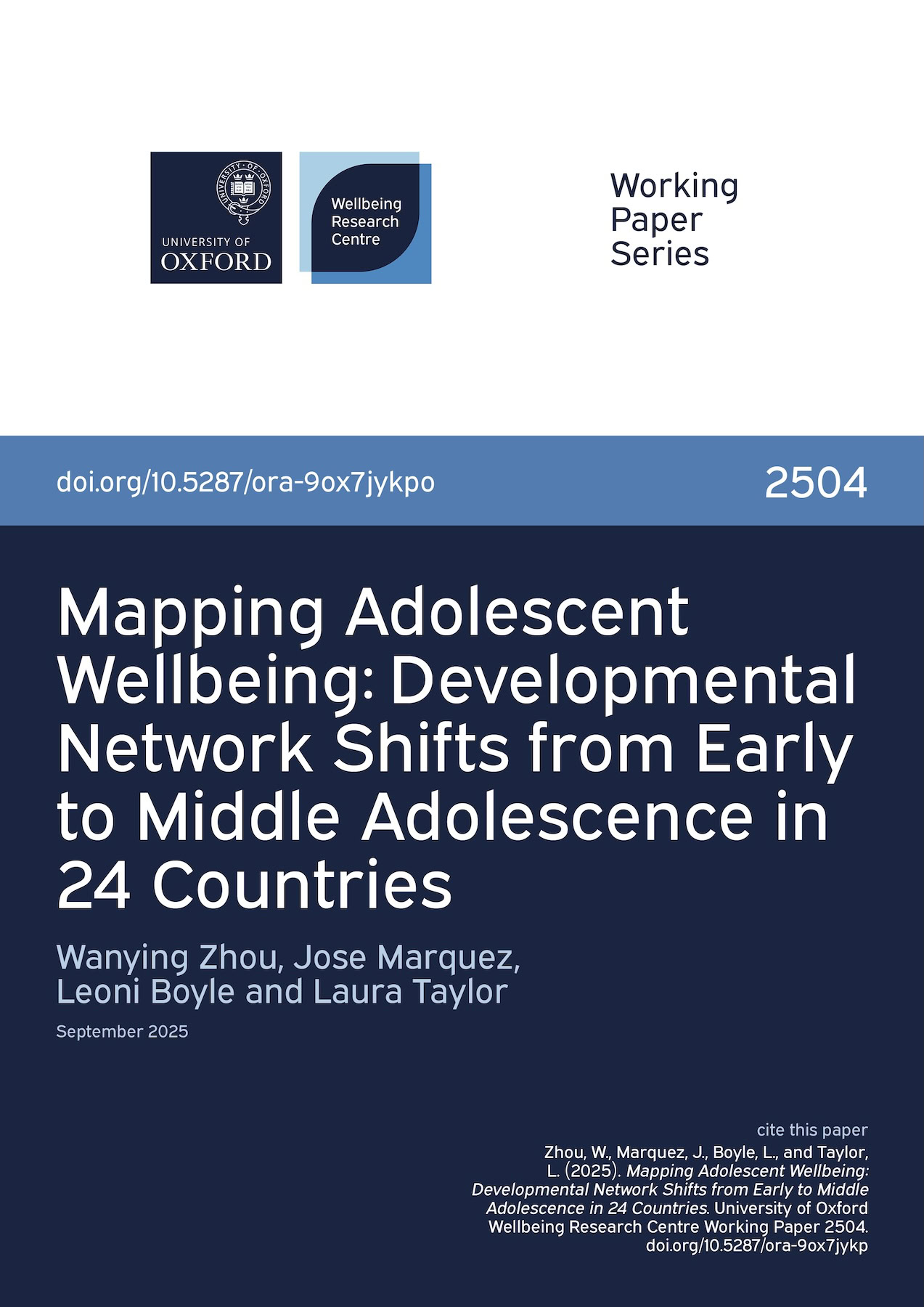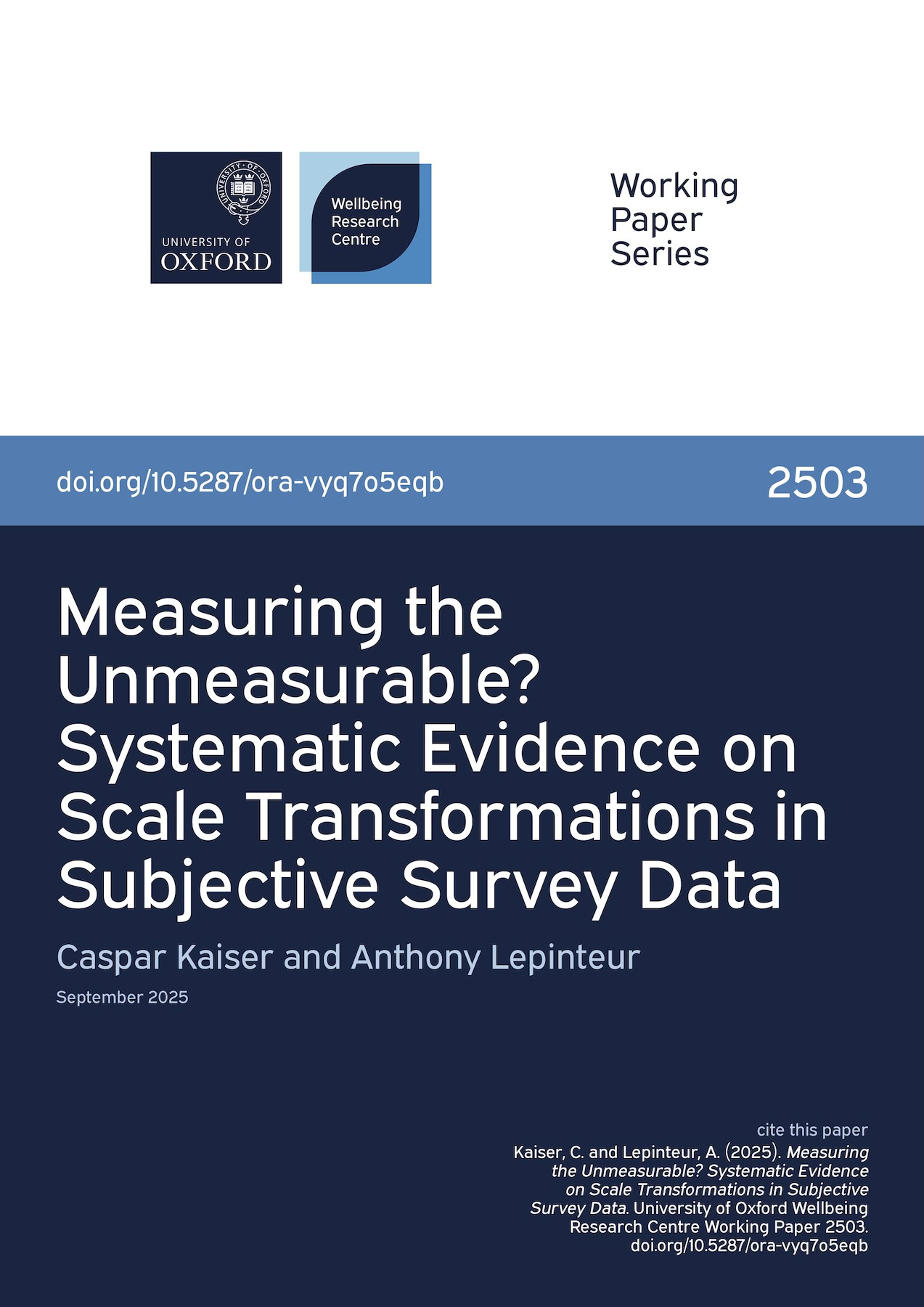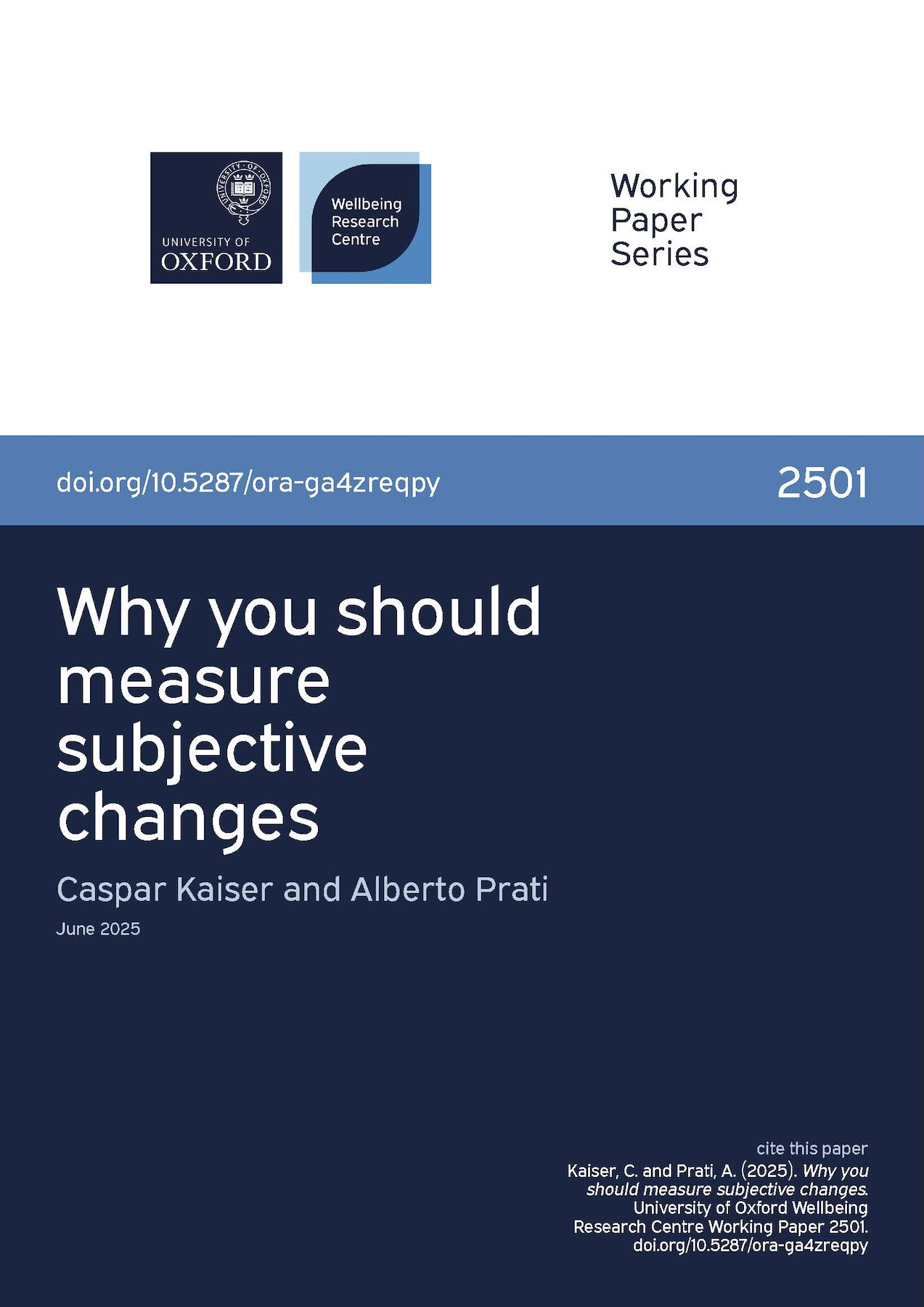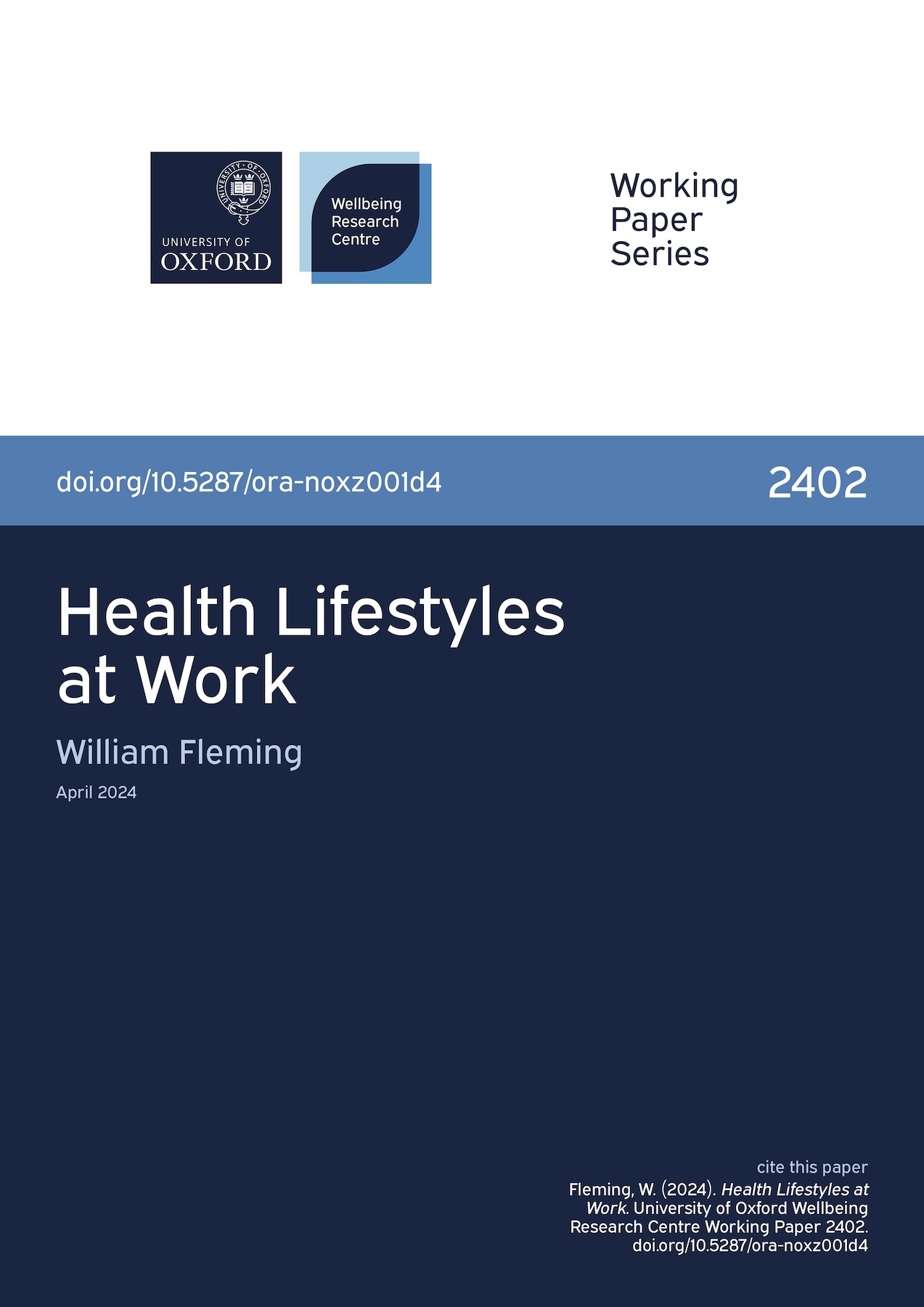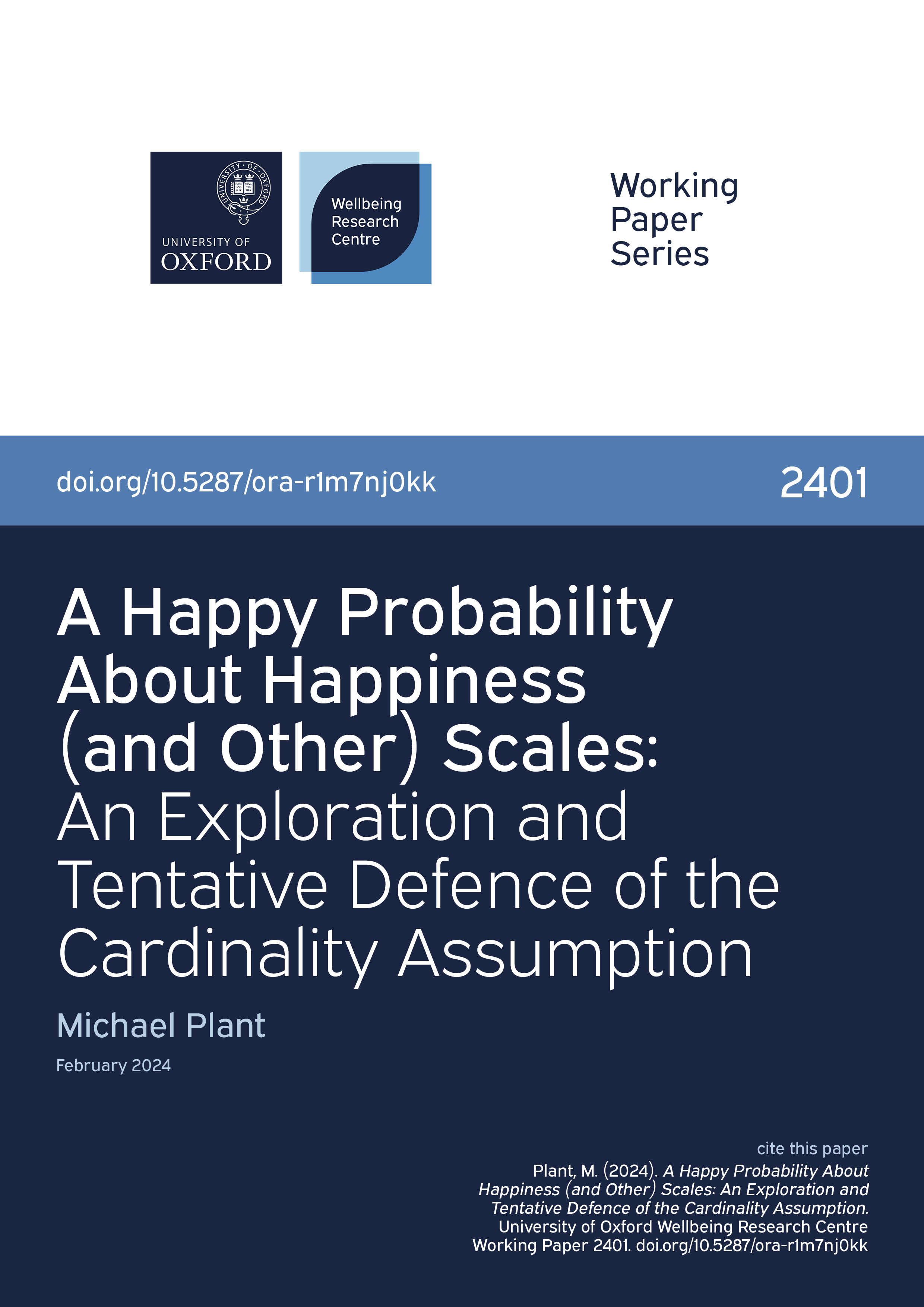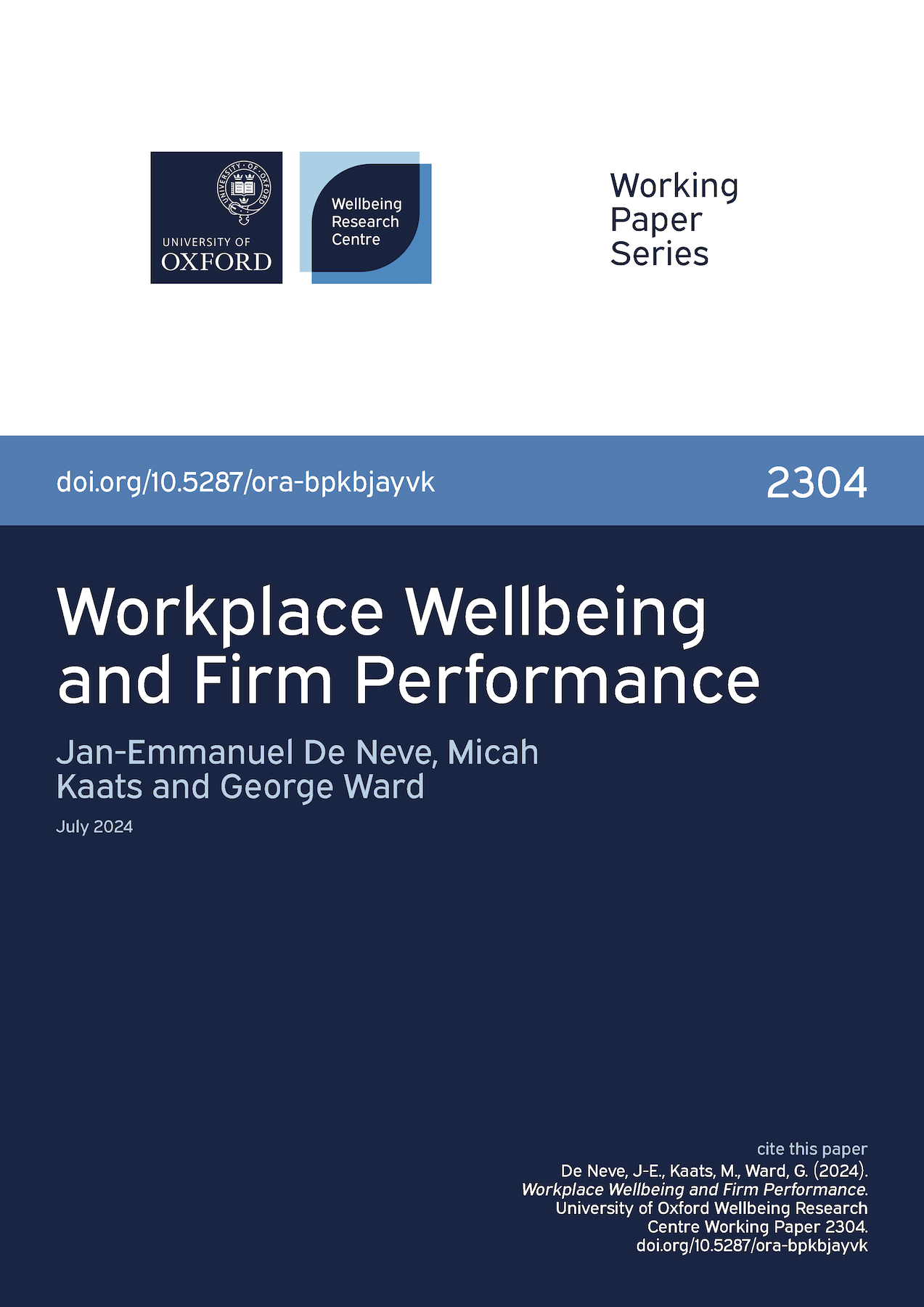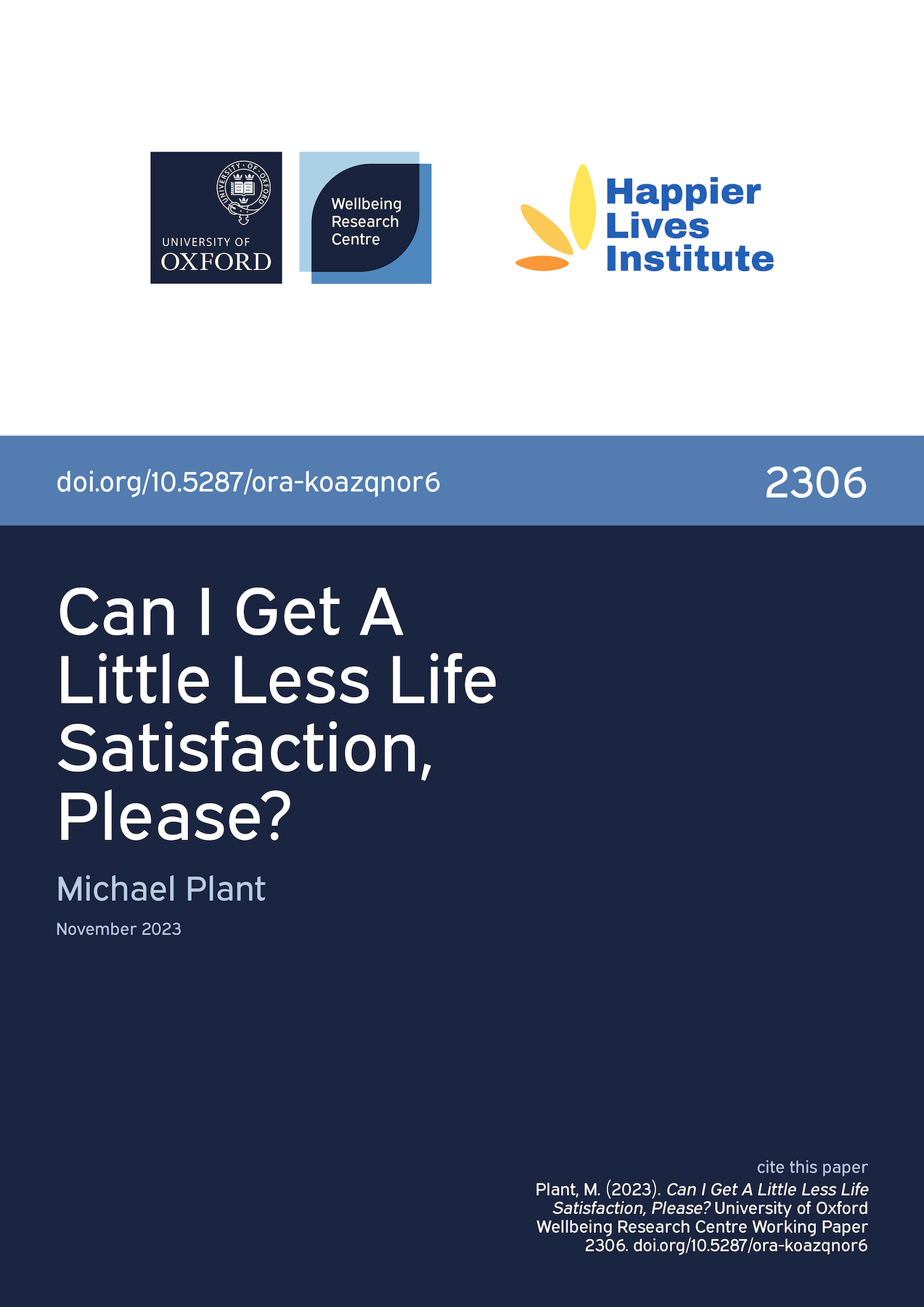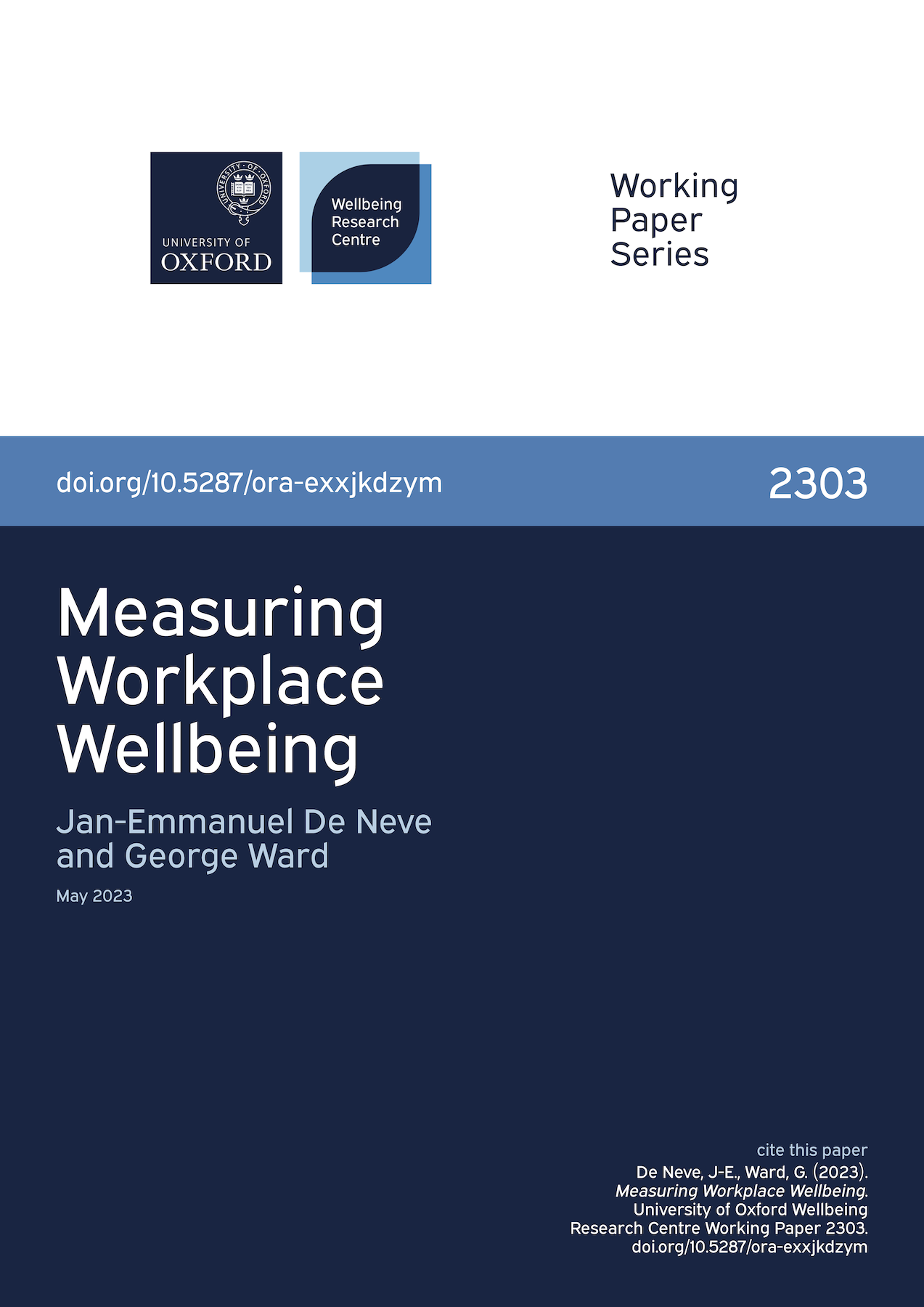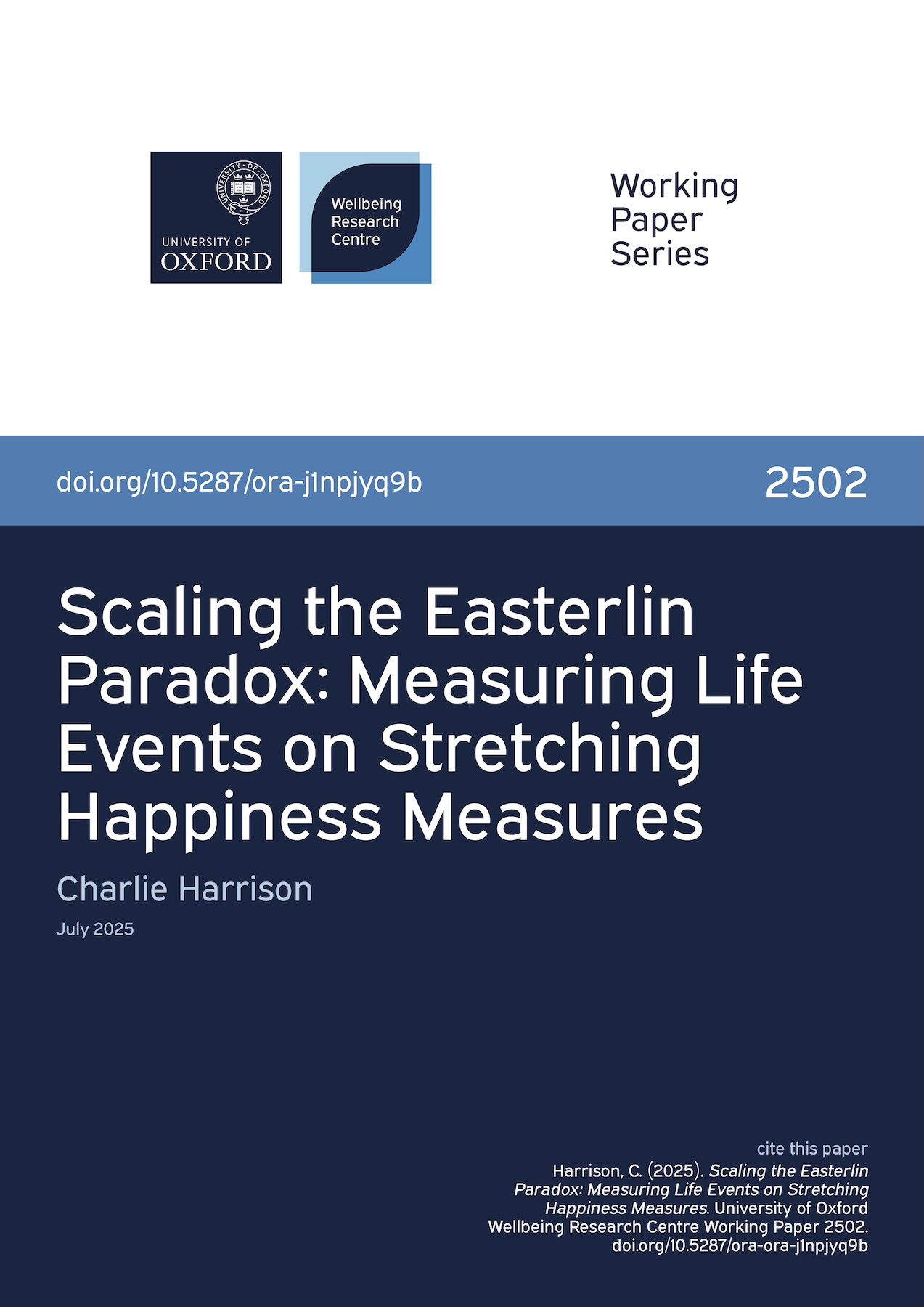
2502 | Scaling the Easterlin Paradox: measuring life events on stretching happiness measures
Charlie Harrison
Are people any happier than in the past? Despite rapid rises to GDP, average life satisfaction in various countries has not changed. Yet, richer people are happier than poorer people, and richer countries are happier than poorer countries. This is the Easterlin Paradox. Researchers typically explain the paradox by suggesting that these higher levels of wealth raise our expectations, preventing us from getting any happier (the hedonic treadmill). The alternative explanation is that our wellbeing is increasing, but any improvements are being hidden by stricter reporting (the rescaling hypothesis). This second explanation has received little attention and researchers typically assume that no rescaling occurs. This paper proposes a new method to quantify rescaling effects. It analyses the short-run effects of five life major events on self-reported happiness, and how these effects have changed over time: a stretched reporting scale would result in falling absolute effect sizes. I test this idea using German panel data with ~650,000 observations (1991–2022). As the rescaling hypothesis predicts, the average effect of life events has fallen by ~35%. Due to scale expansion, self-reported happiness may be underreported by up to 50%. In other words, people may be living happier lives than in the past.
